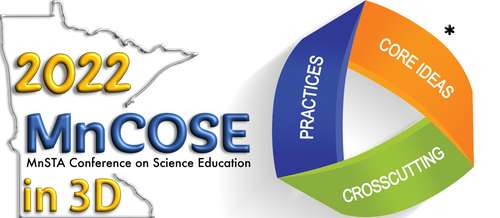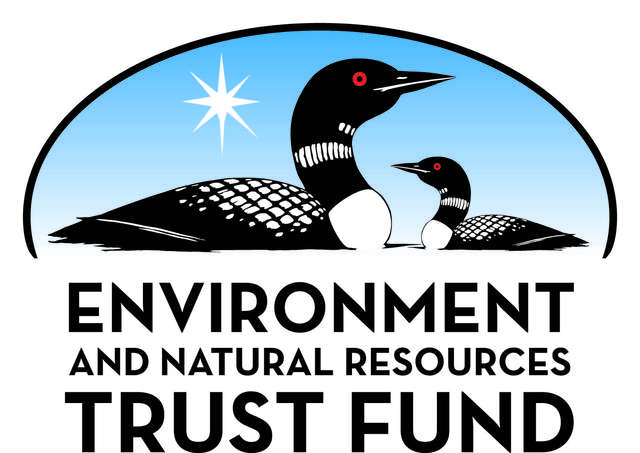Top > Professional Development > MnCOSE22 Keynote Speaker, Strand Speakers, and Special Guests
 |
| Keynote Speaker Brett Moulding |
Brett was a high school science teacher for 20 years, the state science specialist, and the curriculum director at the Utah Office of Education for 15 years. Brett served on the National Academies of Science Engineering and Medicine (NASEM) Board on Science Education for 8 years. He served on the committee that developed the Framework for K-12 Science Education committee and was a lead writer on Next Generation Science Standards. Brett co-directed the committee that developed the NASEM report Investigations and Design at the Center committee. He has written four books specific to science teaching and learning. Currently, Brett is providing science professional development for teachers throughout the U.S. He directs the development of the lesson website Going 3D with GRC and works with teams of teachers who wrote over 400 investigations on the website.
|
|
| Special Guest Jim Rock |
Native Skywatchers We will model some Indigenous Sky activities, pedagogies and resources which you can use to simulate a planetarium. We will take an Indigenous sky tour in the planetarium using our Digistar system, but you can also learn how to use Stellarium with our Dakota and Ojibwe language terms and stories for the constellations. Rock will also show how he uses a rattlesnake and a turtle shell to predict eclipses as our ancestors did here!
|
|
| Earth & Space Sciences Strand Speakers Dr. Bryce Hoppie, Mary Beth Botz |
Scaffolding on the Ivory Tower: Integrating High School and Community Resources to Improve a University’s Watershed Hydrology Study Studies of the environment are often promoted through stakeholder engagement. For example, community leaders, landowners, and sportsman’s organizations frequently provide valuable knowledge of local history and access to otherwise inaccessible observational sites. Furthermore, young scientists, in the form of high school science students, can provide creative, passionate field assistants who contribute critical discoveries and thoughtful inquiries that dramatically improve the results of the study. The strength of one such partnership is illustrated by the ongoing investigation of the watershed surrounding Lake Sleepy Eye, Minnesota. In addition to successfully characterizing the hydrology of the watershed, the project provides an example of how universities, high schools, and community members can work together to promote sustainable environmental conservation. It is also important to note that this project will produce a lasting effect in the community by engaging its future leaders: The high school students who develop a deeper understanding of science are likely to make logical choices that allow for economic development within their community while simultaneously supporting environmental quality.
|
|
| Justice, Equity, and Culture in Science Education Strand Speaker Dr. Stefanie L. Marshall |
What if I (We) Don’t? Toward Equitable Science Teaching and Practices We each have a personal responsibility to mobilize equitable science education. The scalability of equitable science education is largely dependent upon infrastructures designed to support and translate state-level policies to local school contexts in equitable ways. We commonly think of an infrastructure as a system of parts or components directly connecting to conventions of practice around curriculum, assessments, etc. However, we must also consider the humanness (e.g., the decision-making, the envisioning, etc.) that must also be attended to as we align for collective equity efforts. This talk will engage participants in challenges that inhibit equitable science teaching and learning. In this session, participants will consider and strategize on what it will take to personally lead and mobilize a human infrastructure for equitable science education within their school, district, and/ or organization.
|
|
| Life Science and Environmental Strand Speaker Rob Croll |
Aanji-bimaadiziimagak o’ow aki (The world is changing) The Ojibwe member tribes of the Great Lakes Indian Fish and Wildlife Commission depend on natural resources to meet spiritual, cultural, medicinal, subsistence, and economic needs. Climate change may affect the ability of tribal members to continue exercising their off-reservation treaty rights to hunt, fish, and gather these beings/species.
|
|
| Physical Sciences Strand Speaker Steven Butler |
Improving Chemical Lab Safety Knowledge and Culture in the Classroom An overview of methods for improving lab safety taken from experiences of the University of Minnesota Joint Safety Team. This session will be an overview of the topics taught at the Chemical Safety in High School Lab workshop. Topics include, preparing safer demos, proper waste handling and PPE, and building safety culture.
|
|
| Implementing the 2019 MN Science Standards Strand Speaker Mark Peterson |
Implementing the MNSS and Standards-Based Grading How can you use the 3 Dimensions of the newly adopted MNSS to communicate about your student's learning more accurately? It can be overwhelming to look at Performance Expectation and try to figure out how to assess it in the 3 Dimensions. This is session will dissect performance expectations and help use standards-based grading pedagogy to make sense and provide practical strategies.
|
|
| Community and Global Impacts Strand Speaker Peter McLaren |
Panel: Teaching Climate Change: Empowering Our Students So They Can Change the World Climate change is a crucial socio-scientific global problem. One of the most important mitigation strategies is educating our young people on this complex and multidisciplinary problem. All students are capable of learning about climate change.
|









 Minnesota science teachers should know about:
Minnesota science teachers should know about: